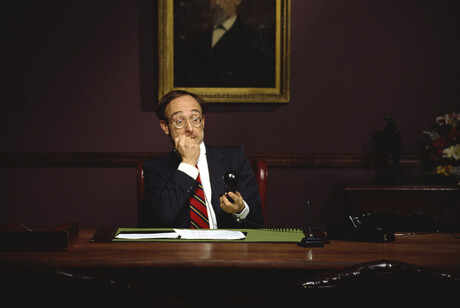A.G. Daniels served as General Conference president from 1901 to 1922. He previously served as a conference and union president. Daniels was the longest serving president of the General Conference. He often said, “There are no positions of honor, only of service.” On a human level, we all want to feel important. As Roy Adams said at a meeting for pastors and elders, “We all want to be big fish in our little pond.” It is human to notice how people with a more influential job title or committee post are treated with more respect.
I am inspired by leaders who show an attitude of service. I remember Jan Paulsen coming to our camp meeting when he was General Conference president. He didn’t request a special parking place; he followed the directions of the parking people and parked in a field a long way from the auditorium. Then he strolled across the grass with his Bible in his hand like a visiting pastor. He had the title of General Conference president, but in his heart he was a pastor coming to share encouragement and lift up Jesus.
Jer. 6:13–14 says, “From the least to the greatest, all are greedy for gain; prophets and priests alike, all practice deceit. They dress the wound of my people as though it were not serious. ‘Peace, peace,’ they say, when there is no peace."
I hear this passage telling us that it is human to be greedy for gain. How can my situation benefit me? But the heart of a leader is to realize that it is not about me. The authority given to a leader is on trust. It is for the purpose of furthering the mission of the kingdom. It is keeping in mind that the wound of God’s people is serious and that if we lose focus on that, we miss the point of being a leader. And a leader can’t just tell people what they want to hear. To say “Peace, peace,” when there is no peace is malpractice.
Because power has a great capacity to corrupt and make us lose perspective, it is vital to have a spirit like John the Baptist who said, “He must increase, and I must decrease.” I remember once when I was boys' director at a camp, one of the counselors lost track of time and was late to take care of his boys. I scolded him too harshly. It would have been appropriate to remind him of his responsibilities, but I was unkind and mean. I can still picture the hurt in his eyes. I later apologized deeply and asked forgiveness.
It taught me that a leader can’t use their authority to vent their emotions. It made me aware that my own brokenness was a limiting factor on my leadership and that I needed to address my own issues. Leadership will bring out our limitations and shine a light on our brokenness. We have to dress our own wounds to be able to help others with theirs.
Prov. 30:22 says, “Under three things the earth trembles, under four it cannot bear up a servant who becomes king.” Leadership will bring to light issues and insecurities in our past. The degree to which we address them is the degree to which we provide servant leadership.







